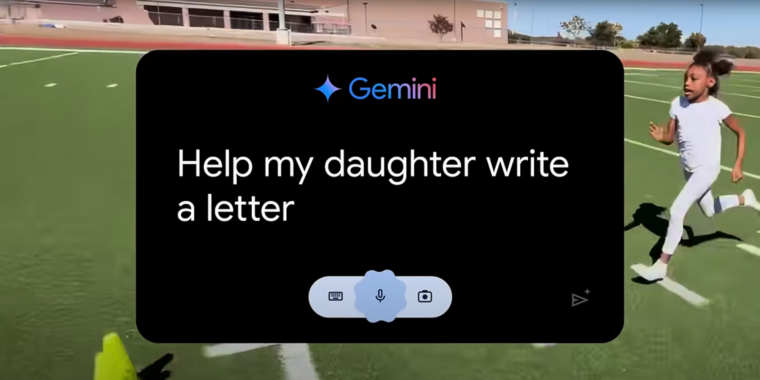If you’ve watched any Olympics coverage this week, you’ve likely been confronted with an ad for Google’s Gemini AI called “Dear Sydney.” In it, a proud father seeks help writing a letter on behalf of his daughter, who is an aspiring runner and superfan of world-record-holding hurdler Sydney McLaughlin-Levrone.
“I’m pretty good with words, but this has to be just right,” the father intones before asking Gemini to “Help my daughter write a letter telling Sydney how inspiring she is…” Gemini dutifully responds with a draft letter in which the LLM tells the runner, on behalf of the daughter, that she wants to be “just like you.”
I think the most offensive thing about the ad is what it implies about the kinds of human tasks Google sees AI replacing. Rather than using LLMs to automate tedious busywork or difficult research questions, “Dear Sydney” presents a world where Gemini can help us offload a heartwarming shared moment of connection with our children.
Inserting Gemini into a child’s heartfelt request for parental help makes it seem like the parent in question is offloading their responsibilities to a computer in the coldest, most sterile way possible. More than that, it comes across as an attempt to avoid an opportunity to bond with a child over a shared interest in a creative way.



The thing is, LLMs can be used for something like this, but just like if you asked a stranger to write a letter for your loved one and only gave them the vaguest amount of information about them or yourself you’re going to end up with a really generic letter.
…but to give me amount of info and detail you would need to provide it with, you would probably end up already writing 3/4 of the letter yourself which defeats the purpose of being able to completely ignore and write off those you care about!